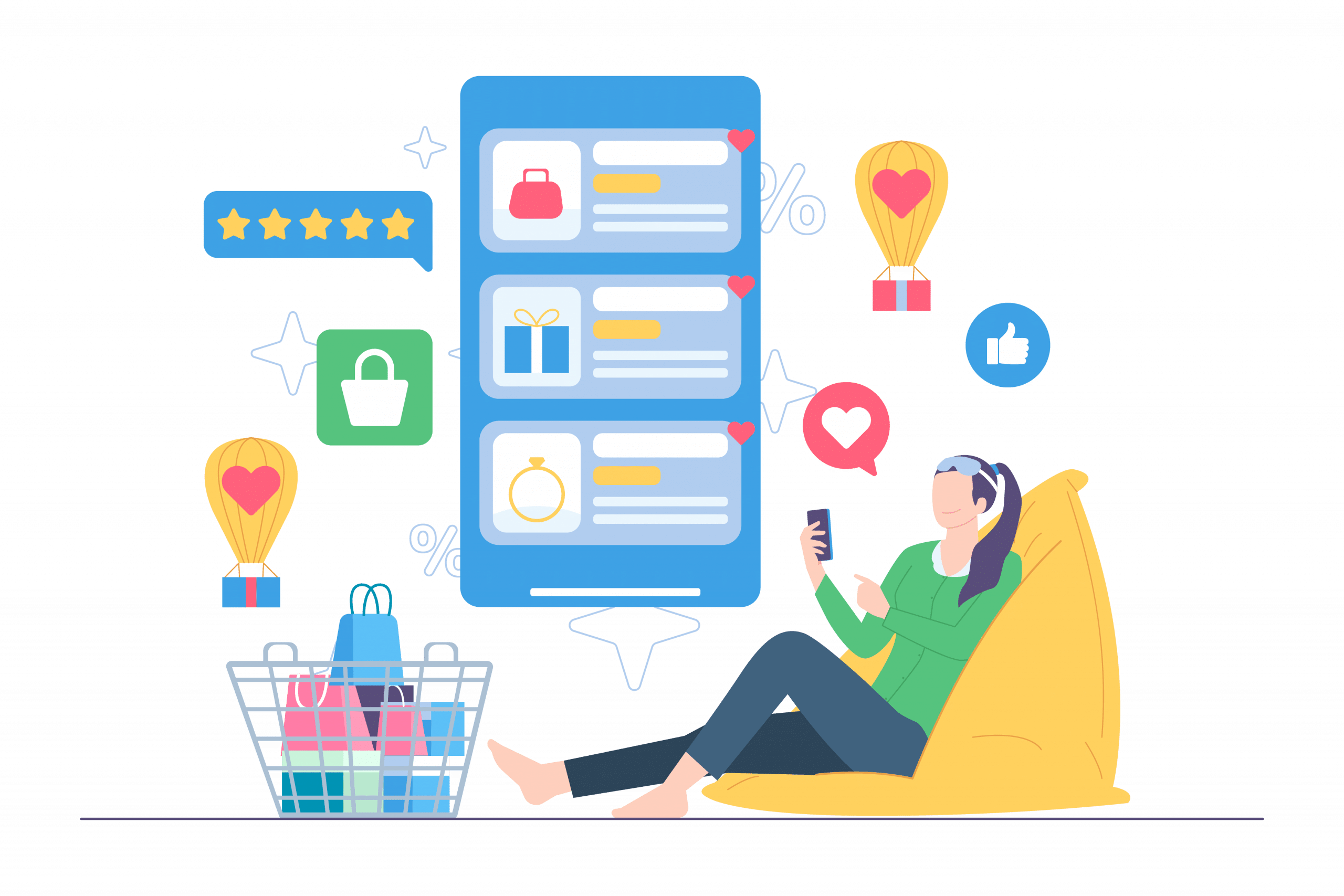Shopify vs volusion: Which One To Choose?
To create a successful online store, it’s important to choose the right development platform. The success of your business in the market depends on how user-friendly, straightforward, efficient, and attractive your website is. According to research, slow page loading increases the likelihood of customers leaving your online store without purchasing by 32%. Furthermore, 79% of visitors who are dissatisfied with a website’s performance say they won’t return. Therefore, it’s worth dedicating maximum attention to the development of your virtual store.
We will examine two popular e-commerce builders that have earned the trust of many retailers: Shopify vs. Volusion. Which platform is suitable for your business? We have compared them based on various criteria so that by the end of this article, you can determine the most suitable option for yourself.

Brief Overview of Shopify
Shopify is one of the most popular commercial builders for creating online stores. Users can also engage in online commerce through social media, email, marketplaces, and similar resources. It stands out with many features, auxiliary tools, and additional apps. In the Shopify store, you will find over 8,000 different apps and about 157 paid and free website themes, allowing you to customize the online store according to your business needs.
Founded in 2006, Shopify quickly gained popularity among millions of small businesses and retailers worldwide. According to Demand Sage statistics, as of August 2023, the company’s revenue is $3.20 billion, and its market share is 25% of the entire e-commerce platform market.
Data from Buildingwith as of September 11, 2023, indicates that 6,926,251 websites have been created using Shopify, including historical ones. At the time of writing this article, there were 6,087,167 active websites. Looking at the geographical distribution, the platform has customers from 175+ countries worldwide, with the most frequent users residing in the USA, the UK, Australia, Brazil, Germany, and Canada.
The builder has a user-friendly interface and is well-suited for people without coding skills. This significantly lowers the entry barrier for non-technical professionals, directly impacting Shopify’s popularity among retailers.
Brief Overview of Volusion
Volusion company is a similar commercial platform for creating online stores, founded in 1999. It offers software for website design and transaction processing tools for small and large e-commerce enterprises. With this builder, you can also sell products through social media. Users often implement links to Facebook (36.4%), Twitter (22.1%), and Instagram (18.2%) on their online stores.
Data from Store Leads for the third quarter of 2023 shows that the platform has only 5,878 active websites. It is most popular in the USA, where 51.2% of stores created with its assistance are located. Entrepreneurs in Canada (2.6% of stores), the UK (1.8%), and Australia (1.2%) also use this builder.
In the Volusion vs. Shopify comparison, the latter clearly wins in terms of the number of users and created online stores. Nevertheless, Volusion has its advantages, such as a large number of payment gateways, tools for in-depth analytics, the presence of a mobile application, and more.
When working with Volusion, some HTML coding knowledge may be required, but creating standard online stores is more straightforward from a technical perspective. However, newcomers may find it challenging to navigate the control panel. Nonetheless, the mobile app lets you manage your website on the go. Volusion offers over 80 applications and 45 free and paid templates for online store design.
To get a comprehensive comparative analysis of these two popular builders, let’s consider the key features of each of them.
Pricing and Plans
Volusion, Shopify are digital products that are delivered as Software-as-a-Service (SaaS), meaning they provide turnkey solutions for building complete e-commerce websites. Accordingly, they have their own pricing plans, depending on the range of services and features you need. Notably, the cost of services of these two platforms is pretty similar.
Shopify offers 5 pricing plans:
- Starter – $5/month.
- Basic – $32/month.
- Retail – $89/month.
- Shopify – $92/month.
- Advanced – $399/month.
Additionally, the platform has the Shopify Plus pricing plan, which can vary around $2,000 per month depending on your business needs.
Volusion offers users 4 pricing plans:
- Personal – $35/month.
- Professional – $79/month.
- Business – $299/month.
- Prime – the amount is calculated based on the total volume of online payments processed using one of the payment methods offered by the platform.
Both builders offer similar pricing plans. The more expensive the plan, the more features you can access. They also have premium offers that are calculated based on quotes. However, it’s worth noting that Shopify provides a discount of up to 25% on any pricing plan if you subscribe for a year in advance.
A clear difference between Shopify and Volusion is the imposition of limits on the number of sales. This is the policy practiced by Volusion, so depending on the plan you choose, you get limits on the amount of transactions. For example, for users of the $35/month Personal plan, the limit on profits is $50,000 per year. If this amount is exceeded, customers start being charged a commission. On the other hand, Shopify does not practice imposing limits on user sales.
Ease of Use and Interface
Regarding ease of use, both builders have clear settings and allow you to develop an online store in one day. They also offer a navigation panel that will appear after the site is finalized. With its help, you can easily manage various operations and perform business functions. For example, install store updates, add inventory, collect and view analytics, fulfill orders, track performance, and more.
The interfaces of Volusion and Shopify are also very similar. On the left is a menu with options, and on the right is the features or content you can manage with those options. But despite the similarities in operation, Shopify’s interface is more simplified, so it’s easier for beginners to understand. There are also differences in the customization of the site:
- Volusion offers a convenient drag-and-drop editor that makes placing blocks on your virtual store pages easy. You can instantly drag and drop text and visual components, testing different layouts on web pages.
- Shopify uses a WYSIWYG (“What You See Is What You Get”) editor. The idea is that the pages on your site will look exactly as you see them in edit mode. That is the same colors, line spacing, fonts, etc.
When exploring “Volusion versus Shopify,” it’s worth paying attention to another common feature of these builders – the theme editor. Both platforms offer the ability to manage the design of your future online store and track changes in real-time. Such personalization will allow you to emphasize the original idea of your business and stand out among competitors. We will discuss theme templates in more detail a bit later.
E-Commerce Features
Both platforms offer a range of core traditional features for creating and managing an online store:
- Ready-made templates
- Product catalog creation
- Use of a content management system (CMS)
- Product search optimization
- Abandoned cart recovery
- Payment gateways for accepting payments
In addition to the traditional features, Shopify provides its customers with numerous additional functions for e-commerce:
- Customer Relationship Management (CRM)
- Inventory management systems
- POS systems
- Acceptance of payments in Bitcoin
- SEO tools
- SSL certificates
- Shopify Experts for hiring verified e-commerce designers
- Shopify Learn for website training
- Multilingual versions of the online store and more.
Volusion has a more modest set of features, including:
- Integration with its own apps and Shopify apps
- Product video placement
- Support for digital wallets (Amazon and Apple Pay)
- Availability of a mobile app
- Support for around 30 payment gateways
- Integration of third-party apps for accounting, customer management, etc.
As we can see, Shopify is more functional and capable of meeting a wider range of business needs. Therefore, it suits both large and small e-commerce enterprises. Meanwhile, Volusion is well-suited for creating a simple online store and conducting sales through social media, as it has all the essential options for this purpose.
SEO and Marketing Tools
As mentioned earlier, Shopify has features marketing and SEO tools in its arsenal to promote your web store. For example, the Shopify Email option allows you to create newsletters, initiate automated newsletters, and categorize email addresses. You can send out up to 10,000 emails for free and then $0.001 per email after that.
Volusion also has built-in SEO tools, but you’ll have to install a third-party app to handle email marketing campaigns. Still, whichever platform you choose, you can add meta titles, meta descriptions, and meta keywords for your products and categories.
An essential advantage of Shopify is the blogging feature, which is unavailable in Volusion. As a marketing tool, a blog allows you to post valuable and interesting information on your site. Such content serves as an effective means of increasing traffic and, as a result, maximizing sales. Therefore, a comprehensive blogging tool will greatly help businesses that emphasize inbound and content marketing.
Despite the usefulness and strengths of such a Shopify tool, it has a few limitations. For example, for categorizing, tagging posts, auto-saving, or archiving articles, it is better to use a third-party blogging platform.
To fully compare Shopify and Volusion, let’s look at what kind of marketing support Volusion provides its customers. On the platform, you’ll find tools to add coupons and discounts for a single item or the entire order. You’re also offered codes for general use and use in individual promotional campaigns.
Volusion also has an integrated loyalty platform called MyRewards to give points to loyal customers. The platform also has a “Deal of the Day” feature in its menu, allowing you to promote one selected product on your homepage all day.
So, with Shopify, you get to promote your store to the vastness of the internet through useful content; with Volusion, you get to promote your store by posting unique offers and promotions.
App Integrations and Extensions
Shopify and Volusion allow you to enhance the functionality of your online store with additional extensions and integrate it with various apps. They also support integration with third-party resources. For example, Mailchimp, Quickbooks, and others.
Both platforms have their own app stores, but Shopify is clearly in the lead here. It offers more than 8,000 all kinds of programs, while Volusion has in its arsenal about 80. Among them is the Zapier app, which allows you to install third-party extensions. You can integrate with your site created on Volusion any programs, including the Shopify store assortment.
The availability of many apps allows you to significantly expand the functionality, but be aware that you have to pay for them. Adding many extensions can cost you a decent amount of money. Therefore, you should choose only those programs that are necessary for the full operation of the site, and they are available in the stores of both platforms.
Customer Support and Resources
When choosing between Shopify or Volusion, it’s worth paying attention to the level of customer support on each platform. Both commercial builders provide contact information on their official websites for reaching out to them.
| Communication Channels | Shopify | Volusion |
| Phone | + | + |
| Social Media | + | – |
| + | + | |
| Live Chat | + | + |
Shopify offers round-the-clock customer issue resolution through various communication channels. Volusion serves users over the phone from Monday to Friday, from 8:00 AM to 7:00 PM CST. For customers using the Personal, Professional, and Business plans, support is available 24/7 through the Merchant Center control panel. Those who choose the Prime plan receive assistance 24/7 through the seller’s personal chat. The platform’s staff strives to provide highly personalized solutions to issues.
A unique benefit of Shopify is that each Shopify Plus premium plan owner is assigned a personalized support agent. This adds value to the builder in terms of user service.
Volusion has a Help Center with over 600 articles and tutorials like Getting Started, Website Development, Business Development, and more. The upside is that they are written in simple language and are extremely clear; the downside is that the articles are not always up to date.
The thing is that the Volusion platform was updated to version 2 in 2017. Due to this, some features were removed, and others were replaced or improved, but the information in the Help Center about them remained. Therefore, users need to check the links and keep the information up to date so they don’t get confused by the instructions.
Shopify also has a Help Center with a virtual assistant page for simple questions. All materials here are divided into categories for easy searching. In addition, Shopify has an official Shopify Help Center YouTube channel, which features video tutorials on how to set up the site and troubleshoot problems.
Migration and Scaling
If your business plans include expanding your online store, you need to choose a builder that allows you to scale simply and without wasting resources. Shopify Volusion comparison would be incomplete without considering the tools to expand your digital eCommerce project.
Shopify offers a full range of POS features, including implementing site-to-site sales services with the option of self-checkout from a physical store. The builder also has a “POS Pro” add-on to increase the number of points of sale up to 1,000 locations, both in land-based boutiques and other virtual resources (social networks, marketplaces, and more). This will allow you to scale your audience reach and increase sales.
Volusion, unfortunately, is more modest in its expansion services. It also provides POS functions, but they are difficult to set up and limit the use of the scanner. Therefore, the universal product code must be entered manually in the designer interface.
You can also scale your online store and improve its performance using Shopify’s apps or third-party programs, in the case of Volusion. From a time-saving perspective, the first option is more advantageous because the Shopify app store already has the right programs with ratings and reviews from other users.
In terms of migration, entrepreneurs can migrate their Volusion online store to the Shopify platform if they wish. It is important to note that this process does not have an automated solution, as both platforms are proprietary. In other words, both builders have copyright holders and come with closed-source code, making them unavailable to modifications by third-party developers. Shopify migration agencies help to migrate data from one platform to another, which significantly makes it easier and speeds up the process..
Categories and Product Parameters
An important aspect in choosing a builder is the types and quantity of products you can sell on the created website. Shopify offers a broader range of categories, including digital and physical products, services, subscriptions, and more. Websites built on Volusion are limited to physical products only. Therefore, you won’t be able to sell software, text, and visual content that needs to be downloaded, apps, and other digital products on Volusion.
As Demand Sage statistics show, entrepreneurs selling products from the following categories most frequently use Shopify:
- Fashion
- Clothing
- Jewelry
- Bags
- Shoes
According to data from Store Leads, Volusion is used by retailers in the following categories:
- Home and Garden
- Business and Industrial
- Clothing
- Automotive and Vehicles
- Sporting Goods
As for the quantity of products, Shopify doesn’t impose any limits. You can subscribe to any pricing plan and sell as many products as you want (or can). In contrast, Volusion limits the number of products you can sell. The Personal plan limits your inventory to 100 products, while the Professional plan allows only 5,000. However, the Business and Prime plans have no limits on the quantity of products sold.
The benefits of Volusion include adding product videos and creating as many product options and variations as you want. On Shopify, you can upload only images and set about 100 variations (size, volume, etc.) of your products and only 3 characteristics: color, size, and style.
For digital product creators, Volusion is not suitable at all, but sellers of physical products may still consider choosing the platform.
Templates and Website Design
When choosing Volusion or Shopify, consider your future website’s customization and styling options. Each platform offers a wide range of vibrant and professional templates to help create an attractive design for an online store in any business niche. Additionally, both builders provide responsive page themes that automatically adjust to different devices and screen sizes for your customers.
Both Shopify and Volusion come with a theme editor, which is essential for creating personalized pages on your website. With it, you can:
- Experiment with the placement of images, videos, and reviews.
- Choose colors and fonts that match your brand’s style.
- Modify and duplicate information blocks to other pages and much more.
Volusion offers 11 free themes and more than 34 paid themes priced at $180 each. Shopify’s template library consists of 12 free themes and 145 paid options ranging from $140 to $180. Furthermore, paid Shopify themes come with multiple style variations, allowing you to select color palettes and font choices that align with your brand.
Since Volusion offers significantly fewer templates and variations, users who prioritize the visual aspect of their online store tend to prefer the Shopify platform. While Volusion has a smaller selection of themes, they are not inferior to the competition regarding quality and adaptability.
Payment Process and Fees
For effective operation and successful business development, it’s crucial to implement convenient payment methods on your website. Both builders offer integration with third-party payment systems that process incoming transactions. Additionally, Volusion and Shopify allow you to accept all major credit cards.
Shopify works with over 100 third-party payment gateways, while Volusion works with only 4. Furthermore, each platform has its own payment solution based on Stripe:
- “Shopify Payments” – available for retailers in 23 countries worldwide.
- “Volusion Payments” – only available in the United States.
When making your choice, remember the additional fee for credit card processing. It applies whether you use the builder’s own payment solution or a third-party one. This fee is present on both platforms:
- Volusion – 2.15% + 30 cents.
- Shopify – 2.9% + 30 cents for online credit cards and 2.7% + 30 cents for in-person credit cards.
Please note that Shopify also includes a fee for every payment made on the site through a third-party payment processing service, typically 2% of each transaction. With Volusion, you can pay through non-native gateways without commissions since the platform only charges for online credit card transactions.
Volusion takes the lead in payment processing, as it allows you to easily integrate one of 4 third-party payment tools and use them without additional fees. Additionally, this platform has a lower credit card processing fee than its competitor. However, Shopify offers a broader range of payment solutions, and its own service, Shopify Payments, is not limited to the United States and works internationally.
Analytics Tools
For most entrepreneurs, it is essential to track various data and collect comprehensive information about their online store’s performance. Tools for collecting, analyzing, and organizing statistics facilitate analytical operations to promote and grow your business. In this matter, Volusion clearly beats Shopify as it offers great analytics and data handling tools. The only difficulty is that you need some HTML coding knowledge to use them.
For example, to implement the Visitor Analytics tool on Volusion’s website, you’ll need to change your theme’s HTML code. Fortunately, the platform offers simple step-by-step instructions to help you understand this process.
For business owners focused on collecting and interpreting data about customers, sales, purchases, and more, Volusion is worth a look. Note that Shopify can also provide you with tools for working with analytics. The builder offers to install from its store analytical applications for collecting and working with various data. But, most of them are paid and do not have enough functionality compared to Volusion’s own tools.
Final Verdict
Summing up the Shopify vs. Volusion review, we can confidently state that both builders perform well in their respective tasks. Summarizing the data we’ve examined, we’ve highlighted the pros and cons of each builder.
Pros of Shopify:
- A wide selection of affordable templates.
- Numerous apps and extensions.
- No limits on the number of products you can list.
- A large variety of product categories to work with.
- Strong marketing and SEO tools.
- 24/7 customer support.
Cons of Shopify:
- Fees for using third-party payment gateways.
- The need to install additional apps for some features.
- Limited analytics tools.
- Few product parameters.
Pros of Volusion:
- Easy integration of both native and third-party apps.
- Strong marketing and analytical tools.
- A loyalty platform for customers.
- No fees for using third-party payment gateways.
- The ability to add videos and photos to product listings.
Cons ofVolusion:
- Limited platform functionality.
- The need for coding for certain customizations.
- Limits on the number of products you can list.
- A limited number of product categories for listings.
Objectively, Volusion is somewhat less feature-rich than Shopify in terms of functionality, product categories, templates, and native apps. Additionally, more online stores have been developed using Shopify, confirming its status as the most popular and user-friendly e-commerce platform. Nevertheless, Volusion would be the better choice for entrepreneurs who prioritize statistics and the analytical aspect of their business.
Conclusion
To make a decision about choosing a builder, it’s worth weighing the pros and cons, analyzing the advantages and disadvantages, and preparing a preliminary cost estimate for one platform or another. Are you looking to launch your e-commerce website or migrate to a more suitable platform? Seek the support of an experienced development team that can assist you in creating an online store from scratch on any builder, switch from Volusion to Shopify, or vice versa.
Turn to the experts at GetTrusted. We will find the best licensed Shopify or Volusion development company for you in the shortest time possible.










